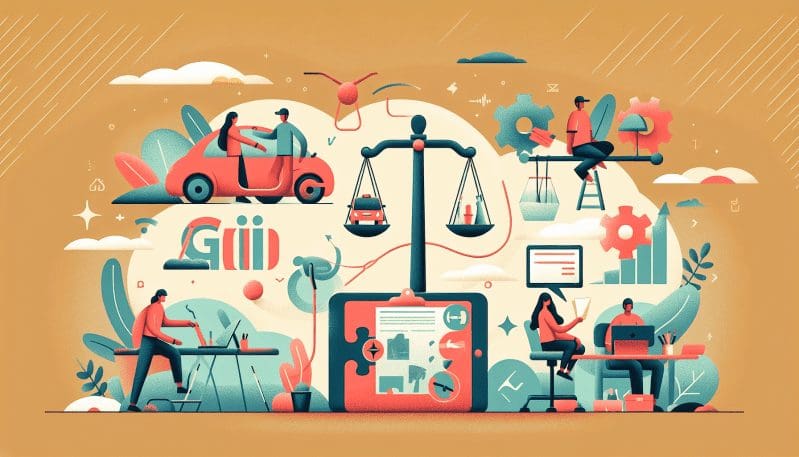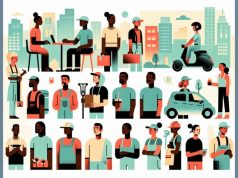As the Gig Economy burgeons, it’s redefining the very essence of employment, much like how the Industrial Revolution transformed the workforce centuries ago. New York City, the pulsating heart of progress, witnesses a daily influx of independent contractors buzzing through its streets, from Uber drivers mapping the grid to TaskRabbit fixers renovating brownstones. The shift towards gig-based work unfolds rapid, yet the questions of job security, benefits, and labor rights loom large over the workers who power this economy.
The gig economy, in its current state, offers unparalleled flexibility and entrepreneurial opportunity. Yet, it is a double-edged sword, for with freedom comes insecurity. Workers ride the wave of demand, often bereft of the traditional safety nets: healthcare, retirement packages, and unemployment insurance. The risk of instability is palpable, each gig a stepping stone or a stumble in the financial journey.
In the ever-evolving landscape of New York, gig workers navigate a world distinct from their counterparts in cities like San Francisco or Austin. The Big Apple’s regulatory framework is adapting, with recent laws aimed at protecting rideshare drivers ensuring minimum wage—a testament to the city’s progressive stance. Yet, the question remains: is it enough?
The contrasts in experiences are stark when observing worker protections across various cities. Some, like Seattle, have boldly moved to allow collective bargaining rights for rideshare drivers, while others lag, leaving their workers in a precarious dance with the gig economy’s whims.
Looking ahead, policymakers and industry regulators have a Sisyphean task. They must ensure that the dynamism of the gig economy does not erode the bedrock of worker protection. This may include rethinking labor laws that classify workers, mandating benefit contributions akin to the New York Black Car Fund, or instituting portable benefits that attach to the worker rather than the job.
There is a balance to be struck—between nurturing the innovation that gig platforms bring and safeguarding the basic rights of the workers. The Work Times calls upon readers, workers, and policymakers alike to engage in this pivotal dialogue, to shape an economy that works for all. After all, the future of work does not lie solely in the hands of those who design the algorithms but also in the shared aspirations of those who live by them.
As we champion for a fairer, more resilient gig economy, it’s pivotal to remember that behind every app notification and service request, there are real people with aspirations and bills to pay. They’re the lifeblood of cities like New York, and they deserve a labor market that recognizes their contributions with the dignity of stability and protection.
We are at a crossroads, where the gig economy can either devolve into a race to the bottom or evolve into an inclusive ecosystem that fosters innovation while championing worker rights. The Work Times remains dedicated to tracking these shifts, advocating for the New York workforce, and informing our readers on the challenges and triumphs of this modern labor landscape. Because when New York’s workers thrive, the city thrives. And when the city thrives, it sets a precedent for the world to follow.




























